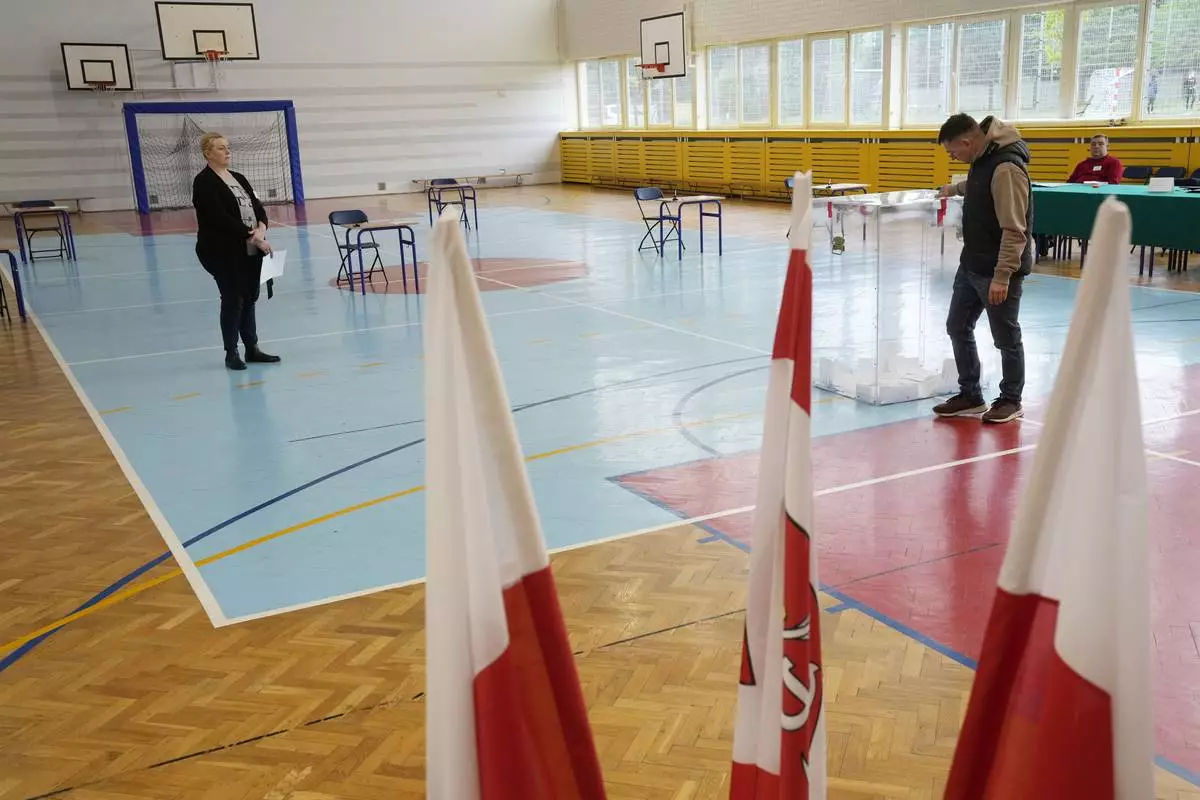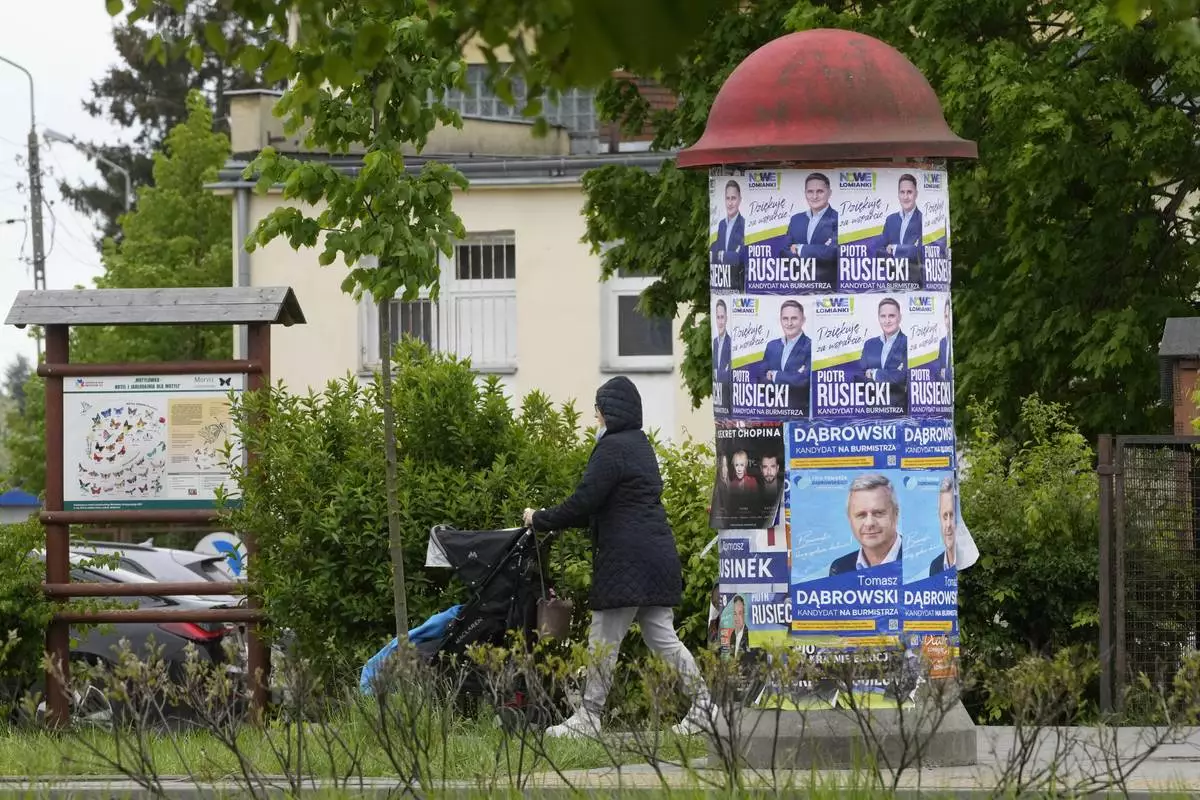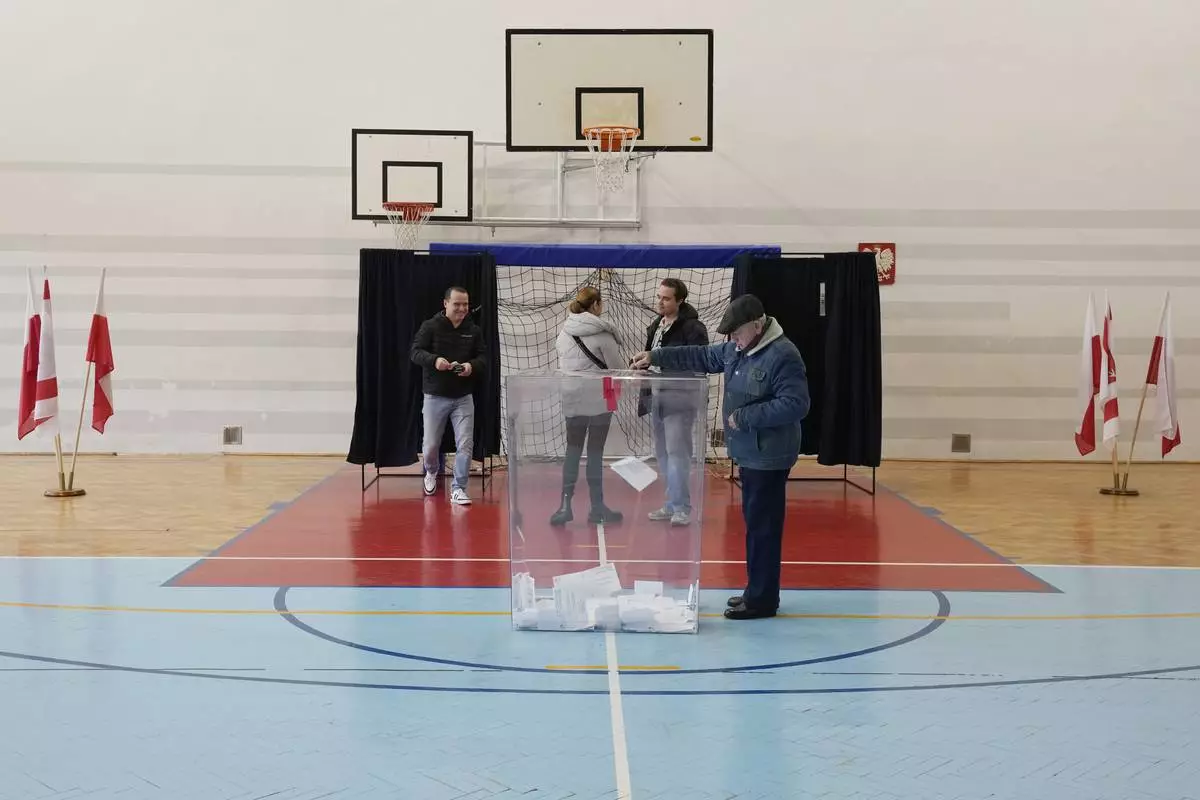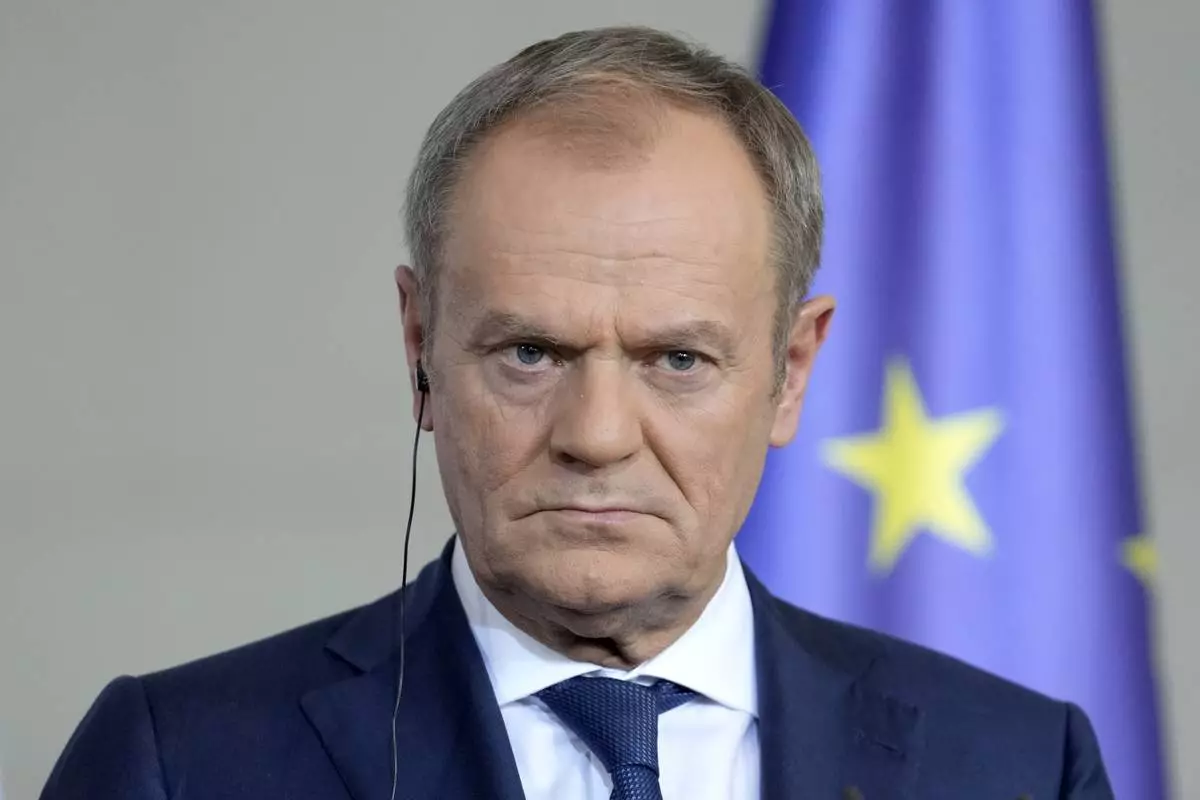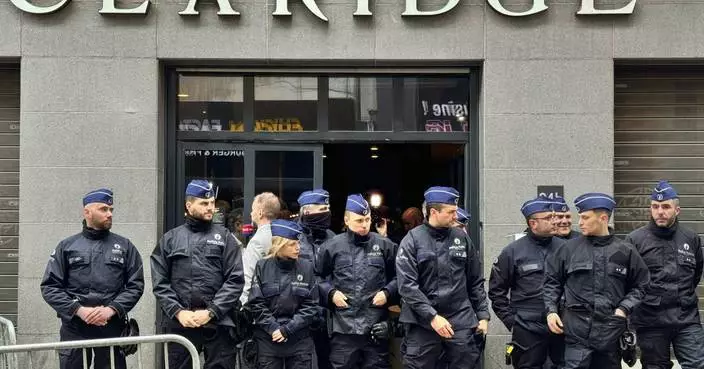Britain's Brexit battle is heading to the country's top court.
The Supreme Court is set to decide whether Prime Minister Boris Johnson broke the law when he suspended Parliament on Sept. 9, sending lawmakers home until Oct. 14 — just over two weeks before the U.K. is due to leave the European Union.
WHY WAS PARLIAMENT SUSPENDED?
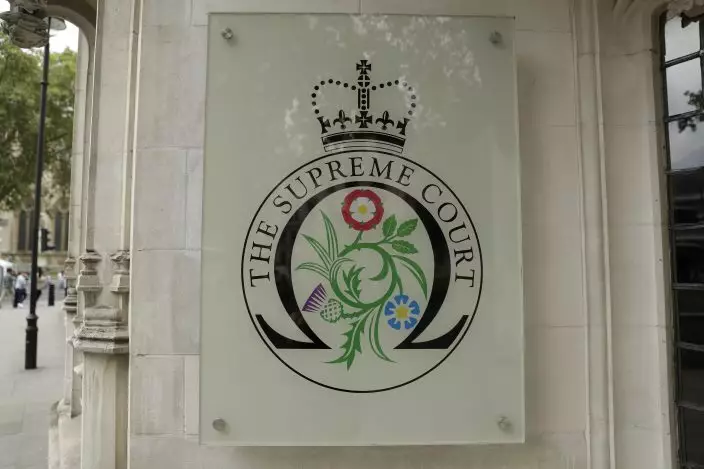
An exterior view shows a sign by the main entrance of the Supreme Court in London, Monday, Sept. 16, 2019. Britain's Supreme Court this week will rule on whether Britain's Prime Minister Boris Johnson overstepped the law when he shut the legislature for a crucial five-week period. Johnson portrays himself as more convinced than ever that Britain will break with the EU at the end of October. (AP PhotoMatt Dunham)
Johnson says his decision to prorogue — suspend — Parliament was both legitimate and routine.
Parliament is prorogued about once a year so that the government can launch a new program of legislation with a formal State Opening of Parliament and a policy speech read by Queen Elizabeth II. Johnson, who took office in July, says he is simply doing the same thing — but routine prorogations commonly last several days, not five weeks.
Opponents say the government is not being honest about the reasons for the suspension.
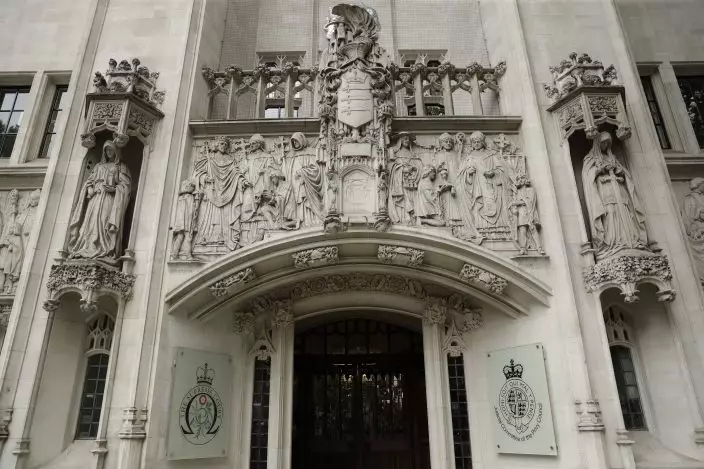
An exterior view shows the main entrance of the Supreme Court in London, Monday, Sept. 16, 2019. Britain's Supreme Court this week will rule on whether Britain's Prime Minister Boris Johnson overstepped the law when he shut the legislature for a crucial five-week period. Johnson portrays himself as more convinced than ever that Britain will break with the EU at the end of October. (AP PhotoMatt Dunham)
They say Johnson wanted to sideline lawmakers who are fighting his vow to leave the EU at Halloween, with or without a divorce deal. A majority of legislators want to avoid a disruptive no-deal Brexit, and have put obstacles in Johnson's way. They passed a law compelling the government to seek a delay to the Brexit deadline if no deal is agreed with the bloc, and refused his request for an October election.
Suspending Parliament prevents further challenges while Johnson pursues his "do or die" Brexit strategy.
HOW DID IT END UP IN COURT?
The government faced two separate legal challenges to the suspension. One, at the High Court in London, was led by transparency campaigner Gina Miller, who argues the suspension is an unlawful abuse of power. On Tuesday Miller called it "a classic power grab" that puts "our parliamentary sovereignty and democracy in grave danger."
A group of more than 70 opposition lawmakers filed a similar challenge in Scotland's Court of Session.
The Supreme Court got involved after the two courts produced conflicting rulings.
The London court rejected Miller's claim, saying the decision to suspend, whatever the government's motive, was inherently political and "not a matter for the courts."
The Scottish judges, however, said the prorogation was unlawful because "it was motivated by the improper purpose of stymieing Parliament."
WHAT HAPPENS NOW?
The Supreme Court must decide two questions: Is this a matter for the courts; and, if so, did the government break the law?
The case will be considered by 11 of the 12 Supreme Court judges in a hearing that begins Tuesday and is scheduled for three days. On the first day they will hear from lawyers for Miller and for the British government. Later there will be submissions from the governments of Scotland and Wales and former Prime Minister John Major — all supporting the challenges to the government — and from a Northern Ireland campaigner who argues a no-deal Brexit would endanger the peace process there.
Unlike most British court proceedings, Supreme Court sessions can be broadcast, and this one will be streamed live online .
WHAT HAPPENS NEXT?
The court not is expected to rule immediately, but a judgment could come at the end of this week or early next week.
If the government wins, lawmakers will remain away from Parliament until Oct. 14. If the government loses, the judges could order the legislature to be re-opened.
Johnson has not said what he will do if the judges rule the suspension illegal. He told the BBC he would "wait and see what they say."
Follow AP's full coverage of Brexit and British politics at: https://www.apnews.com/Brexit



